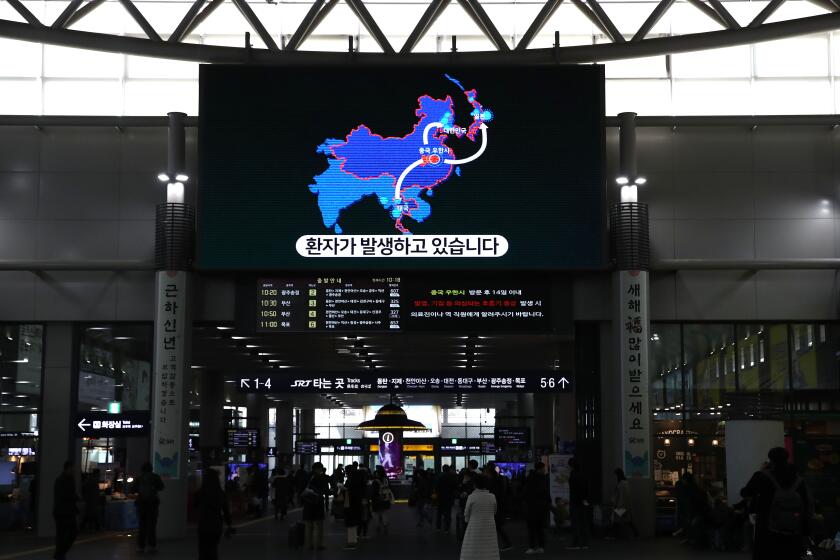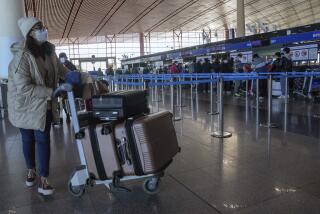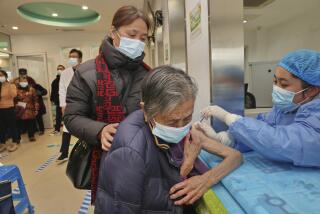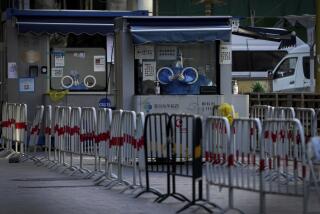In New York City’s Chinatown, residents and doctors brace for coronavirus’ arrival
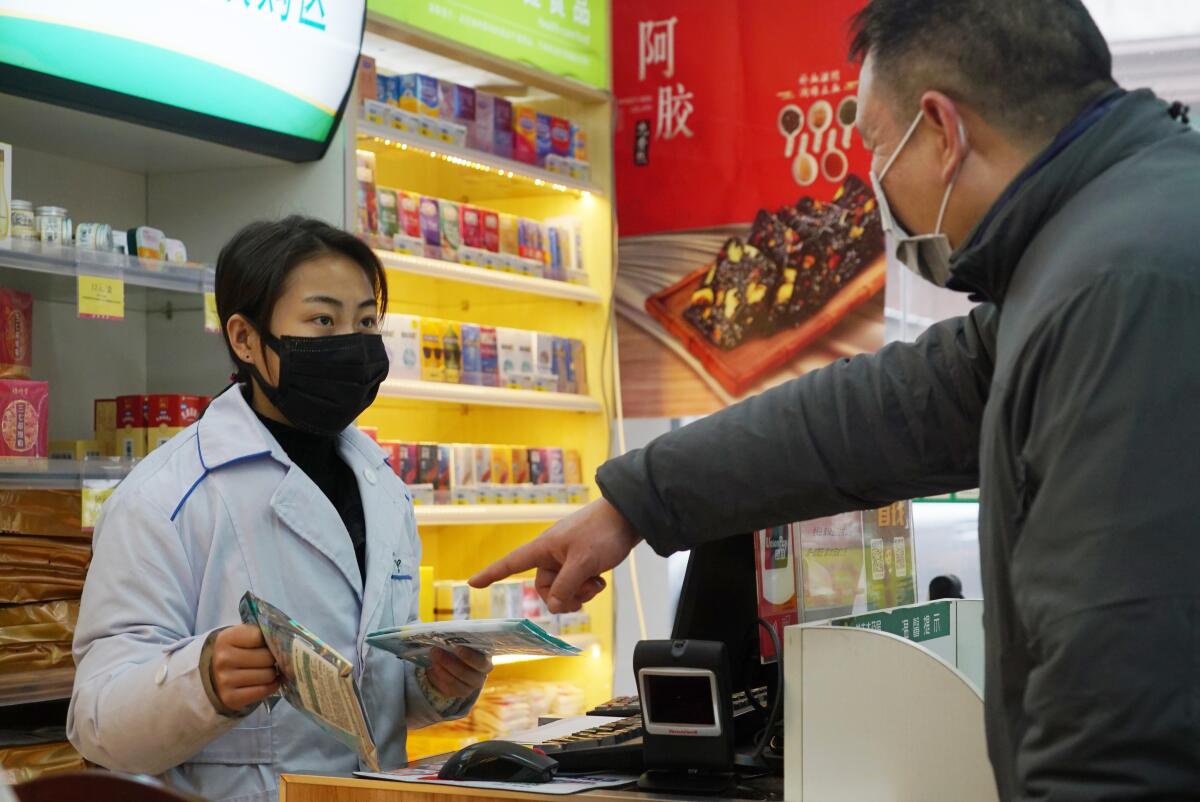
- Share via
NEW YORK — In the city with the largest population of ethnic Chinese outside of Asia, the Year of the Rat is being ushered in with a brisk trade in jade trinkets, steamed New Year cakes and N95 protective masks.
On the eve of celebrations marking the start of the Lunar New Year, the medical-grade face masks have been selling briskly at Canal Pharmacy in Chinatown, said pharmacy technician Elena Zheng. Outside, Lien Chu and Ha Tran were anxious to get in and buy some before they were gone. They were making do with improvised face masks.
Chu, who is pregnant, said the couple won’t be attending any Lunar New Year’s celebrations for fear of exposure to the bug. They will hunker down at home instead.
With so many people traveling from Asia to join families in the United States for the New Year holiday, Tran said it would be “impossible” for China’s quarantine efforts to prevent the coronavirus from coming to New York City.
That view is shared by New York City Mayor Bill de Blasio, who announced Friday that the city’s Office of Health and Mental Hygiene had conducted a drill to prepare for the coronavirus’ arrival.
“We’d be shocked” if the virus failed to turn up in the city, especially with New Year’s traffic, De Blasio said Friday. “We have to act on the assumption that there will, unfortunately, be cases sooner rather than later in New York City.”
If the coronavirus outbreak in China were a Hollywood movie, now would be time to panic. But in real life, most Americans have no need, experts say.
No flights at John F. Kennedy International Airport arrived Friday from the Chinese city of Wuhan, an international transportation hub where the never-before-seen coronavirus is thought to have begun spreading among humans. In a quarantine of unprecedented size and scope, Chinese authorities shut off all traffic into and out of Wuhan and other cities in China’s Hubei province, affecting an estimated 36 million people.
But that was after people infected with the novel germ had shown up in countries including Thailand, Japan and the United States. By Friday, the coronavirus had turned up in France.
There is much still to be learned about how readily the coronavirus spreads. But some of what is known suggests that De Blasio’s assumption is correct.
The coronavirus — a relative of the viruses that cause severe acute respiratory syndrome (SARS), Middle East respiratory syndrome (MERS) and even common colds — may have made its first jump to humans from an animal in a market in Wuhan. But it now seems that the coronavirus has gained the ability to pass from person to person.
Michael T. Osterholm, director of the Center for Infectious Disease Research and Policy at the University of Minnesota, said that the pattern of infections in China suggests the coronavirus outbreak could be accelerated by “super-spreader events,” in which a single person transmits the virus to many people. He also noted that the incubation period — the time between exposure to the virus and the onset of symptoms — could be as long as 14 days.
Indeed, experts believe that people who are infected but not yet showing symptoms are already on the move.
Chinese families often travel to celebrate the Lunar New Year with relatives, including the diaspora in the United States. And Wuhan is to China what Chicago’s O’Hare International Airport is to the United States: a central hub that is not only served by dozens of international airlines, but sends 30 fast trains a day to Beijing, Shanghai and Hong Kong.
“It wouldn’t surprise me if in the next week or less there will be some further reconsideration in China of how to stop this,” Osterholm said. The quarantine around Wuhan, he added, “is a little like shutting the barn door after the cows have escaped.”
In New York, the medical establishment is braced for the resulting impact.
“I think this will play out in the next few weeks, with some people returning from China, and some who have gone from here to China to visit hometowns,” said Dr. Perry Pong, medical director of the Charles B. Wang Community Health Center in the heart of Chinatown. “When those people come back, then we will see how that’ll turn out.”
In the meantime, Pong said, “we are redoubling our efforts to ask our patients if they have traveled in the past two weeks, especially if they are feeling sick.” At his busy facility, Pong said, patients who are coughing, sneezing or have flu-like symptoms are issued a mask immediately. And those who have traveled in Asia in recent weeks will probably be brought to isolation rooms where air-pressure controls prevent the escape of airborne viruses.
Pong said one further factor — flu season — may slow the rapid detection of a newly arrived coronavirus. A daily parade of influenza patients may make it harder to recognize a patient who has been infected with the coronavirus, since the symptoms are so similar.
Fortunately, a rapid test for the new virus is now widely available, he said. “But you throw this in and it’s going to be more complicated.”
